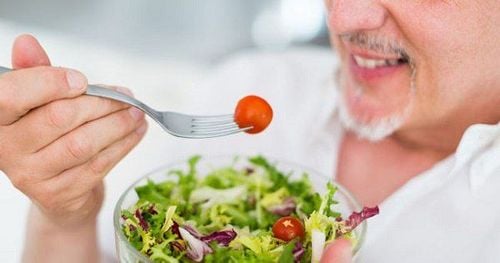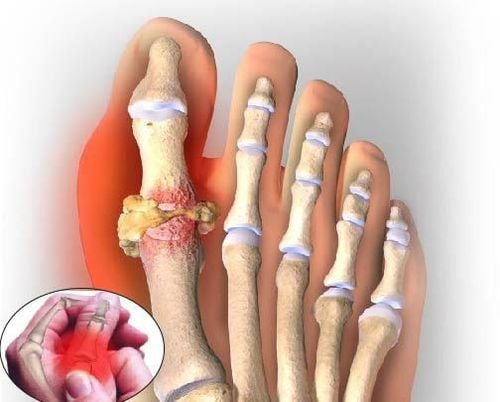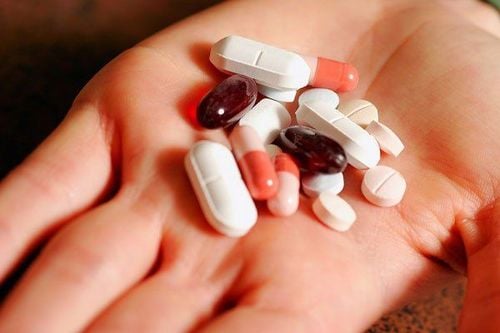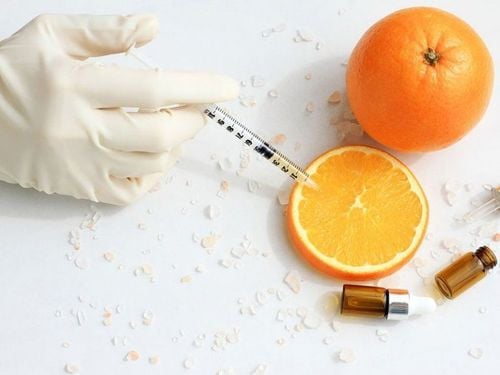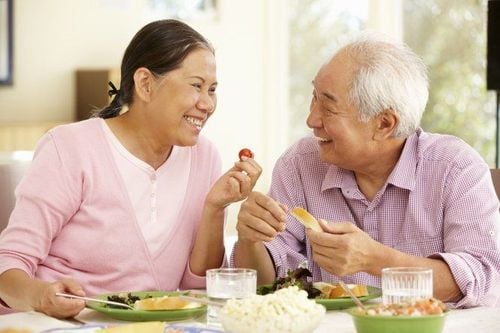This is an automatically translated article.
No matter who you are, in any profession, the aging process is something that we do not expect. The aging process makes the elderly vulnerable, not only physically but also mentally.
1. The physical effects of aging on the elderly In their study, researchers analyzed 46 studies of more than 120,000 people aged 60 and older living without assistance in 28 countries family. They concluded that 4.3% of people in that age group fell ill each year and that women were more vulnerable than men. More than 20% of the world's population will be over 60 years old by 2050, so the number of sick people is projected to increase.
Richard Ofori-Asenso, from the School of Public Health and Preventive Medicine at Monash University in Melbourne, Australia, co-leader of the study, said: “This finding suggests a weak risk of disease in humans. old age is high”.
There is no firm definition of frailty in aging, but it is usually diagnosed when people meet three of the following five criteria: low physical activity, weak grip strength, low energy , slow walking speed and unintentional weight loss.
1.1. The effect of aging on the heart As you get older, your blood vessels and arteries become stiffer. Your heart has to work harder to pump blood. This can lead to high blood pressure and other heart problems.

Quá trình lão hóa có thể dẫn đến huyết áp cao và các vấn đề về tim khác
1.2. Your skin changes as a result of aging You may notice that your skin is drier and less supple than before. That's because your skin produces less natural oils as you age. Also, you sweat less and you lose some of the fatty tissue just under the skin. This can make it appear thinner. You may also notice wrinkles, age spots, and skin bumps or small nodules on your skin.
1.3. Vision and hearing decline The aging process of humans will significantly affect hearing and vision. It may be difficult for you to see objects well up close. You may need glasses to read, experience more glare, or have trouble adapting to sudden changes in light.
When it comes to hearing, you may have difficulty hearing conversations in crowded rooms or listening at high frequencies.
1.4. Your teeth and gums change You may notice that your gums don't seem to be holding on to your teeth anymore. Some medications make your mouth drier. Dry mouth can put you at higher risk of tooth decay and infections.
1.5. Your bones become more brittle Right from your 40s and 50s, aging causes your bones to begin to weaken. They become less dense and crunchier. This increases the risk of fractures. You may even feel like you are shorter. In fact, starting in your 40s, you can be 1 to 2 inches shorter. That happens when the discs in your spine shrink.
Your joints also feel stiffer. The fluid and cartilage lining joints can decrease or wear out with age. When the tissue between joints breaks down, you can develop arthritis.
1.6. Need to urinate more quickly Aging can make it harder to control your bladder. This is called "flow incontinence," and it happens to about 10% of people 65 and older.
Many of these people leak a little when they cough or sneeze, but some lose large amounts of urine before they can go to the toilet. For women, menopause can be a factor. For men, an enlarged prostate can be a problem.
Besides, diabetes can slow down your bowel movements. Some medications can make you constipated. These include medications for blood pressure, epilepsy, Parkinson's disease, and depression. Iron supplements and narcotic pain relievers can also lead to constipation.

Quá trình lão hóa làm cho xương của bạn bắt đầu yếu đi
2. What makes you feel better in the aging process? The first gray hair is a sign of aging that we cannot avoid. We are aging and our bodies are changing. However, the most important thing is that the elderly always need to keep a happy and optimistic spirit during the aging process of the body. “Aging is itself a delicate and gentle process,” says
Marie Bernard, MD, deputy director of the National Institute on Aging. It's really dangerous if you have a sudden, unexpected decline." We shouldn't see aging as a failure of body systems, says Kenneth Minaker, chief of geriatrics at Massachusetts General Hospital in Boston and an associate professor of medicine at Harvard Medical School. “Aging is a life-saving process,” he said. It's a lifelong process of adaptation to prevent us from developing cancers that can kill us."
As aging occurs, the elderly also need adequate replenishment of nutrients. , increase food sources rich in vitamins, protein, reduce bad fat absorbed into the body.Old people can also do light exercise with walking exercises, tai chi...One of the more important things It is necessary to have the attention and talk of other family members to reduce the guilt and illness of the elderly
Follow the website of Vinmec International General Hospital to get more health information. , nutrition, beauty to protect the health of yourself and your loved ones in the family.
Please dial HOTLINE for more information or register for an appointment HERE. Download MyVinmec app to make appointments faster and to manage your bookings easily.
References: healthline.com, webmd.com




